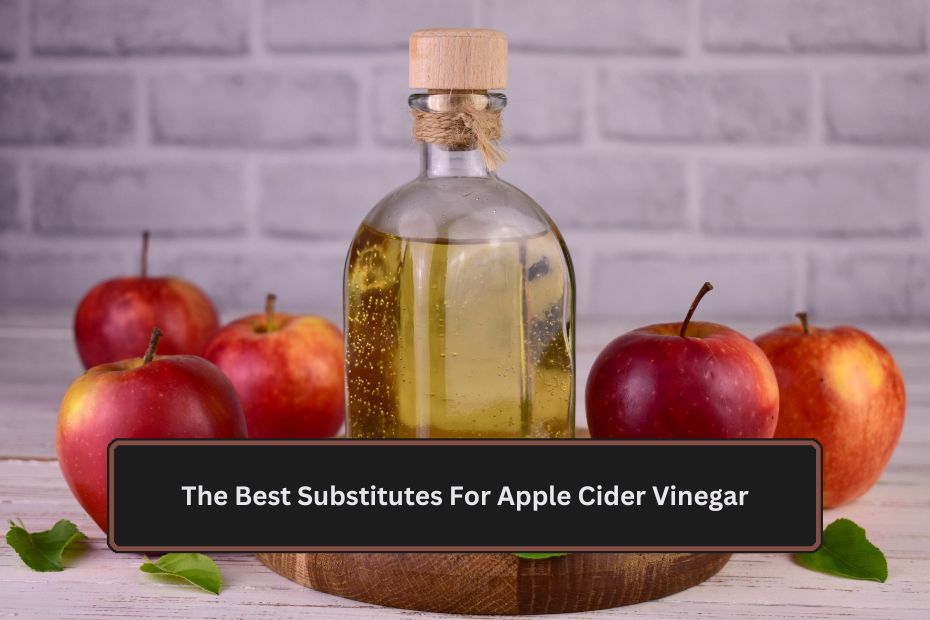Apple cider vinegar (ACV) has become a kitchen staple for many, known for its tangy flavor, health benefits, and versatility in cooking, cleaning, and wellness routines. But what happens when you’re out of this wonder vinegar? Don’t worry—plenty of substitutes can step in and deliver similar results. Let’s explore the best alternatives for apple cider vinegar and how to use them.
White Vinegar
A common and affordable alternative, white vinegar has a strong acidic flavor similar to ACV. Though it lacks the fruity undertone, it works well in recipes where acidity is the primary focus, such as dressings, marinades, or pickling. Use a 1:1 ratio when substituting white vinegar for apple cider vinegar.
Best For: Cooking, cleaning, and pickling.
Lemon Juice
Lemon juice offers a bright, citrusy flavor and acidity that can mimic apple cider vinegar in certain dishes. It’s particularly useful in salad dressings, baking, or marinades where a fresh, fruity tang is desired. Replace ACV with an equal amount of freshly squeezed lemon juice.
Best For: Salad dressings, marinades, and baking.
Lime Juice
Similar to lemon juice, lime juice provides a zesty, acidic flavor. It works well in recipes that benefit from a tropical or citrus note. Use it as a direct replacement for apple cider vinegar in equal amounts.
Best For: Sauces, marinades, and beverages.
Rice Vinegar
Rice vinegar is milder and slightly sweeter than apple cider vinegar, making it an excellent substitute in Asian dishes, sauces, and salad dressings. Opt for unseasoned rice vinegar to avoid altering the flavor profile of your recipe. Substitute rice vinegar for ACV in a 1:1 ratio.
Best For: Asian recipes, salads, and dipping sauces.
Balsamic Vinegar
Balsamic vinegar has a rich, complex flavor with a hint of sweetness. While it’s not as tangy as ACV, it can work well in salad dressings and marinades that benefit from its deep flavor. Since it’s sweeter, use slightly less balsamic vinegar than the amount of ACV called for in the recipe.
Best For: Salad dressings, glazes, and roasted vegetables.
White Wine Vinegar
White wine vinegar is another versatile option with a milder, more delicate flavor than ACV. It pairs well with recipes that require a subtle tang without overpowering other ingredients. Substitute white wine vinegar in a 1:1 ratio for ACV.
Best For: Sauces, soups, and dressings.
Red Wine Vinegar
With a bold, fruity flavor, red wine vinegar can be a suitable replacement for apple cider vinegar in recipes where color and a slight change in taste won’t be an issue. It’s excellent in robust dishes, marinades, and vinaigrettes. Use a 1:1 substitution.
Best For: Marinades, dressings, and hearty dishes.
Cream of Tartar and Water Mixture
For baking recipes, where ACV often acts as an acid to activate baking soda, mix 1 teaspoon of cream of tartar with 1/4 cup of water as a substitute. This combination provides the necessary acidity without altering the flavor significantly.
Best For: Baking and recipes requiring leavening agents.
Tamarind Paste (Diluted)
Tamarind paste, when diluted with water, can replicate the tangy and fruity qualities of ACV. It’s especially effective in Indian, Thai, or Mexican recipes. Use sparingly, as tamarind has a potent flavor.
Best For: Curries, soups, and chutneys.
When selecting a substitute for apple cider vinegar, consider the recipe and the role ACV plays in it. Is it for acidity, flavor, or both? The right alternative depends on the dish and your taste preferences.
Experiment with these substitutes, and you might even discover new flavor combinations that elevate your cooking. With these options at hand, running out of apple cider vinegar is no longer a kitchen emergency!
Visit Home

